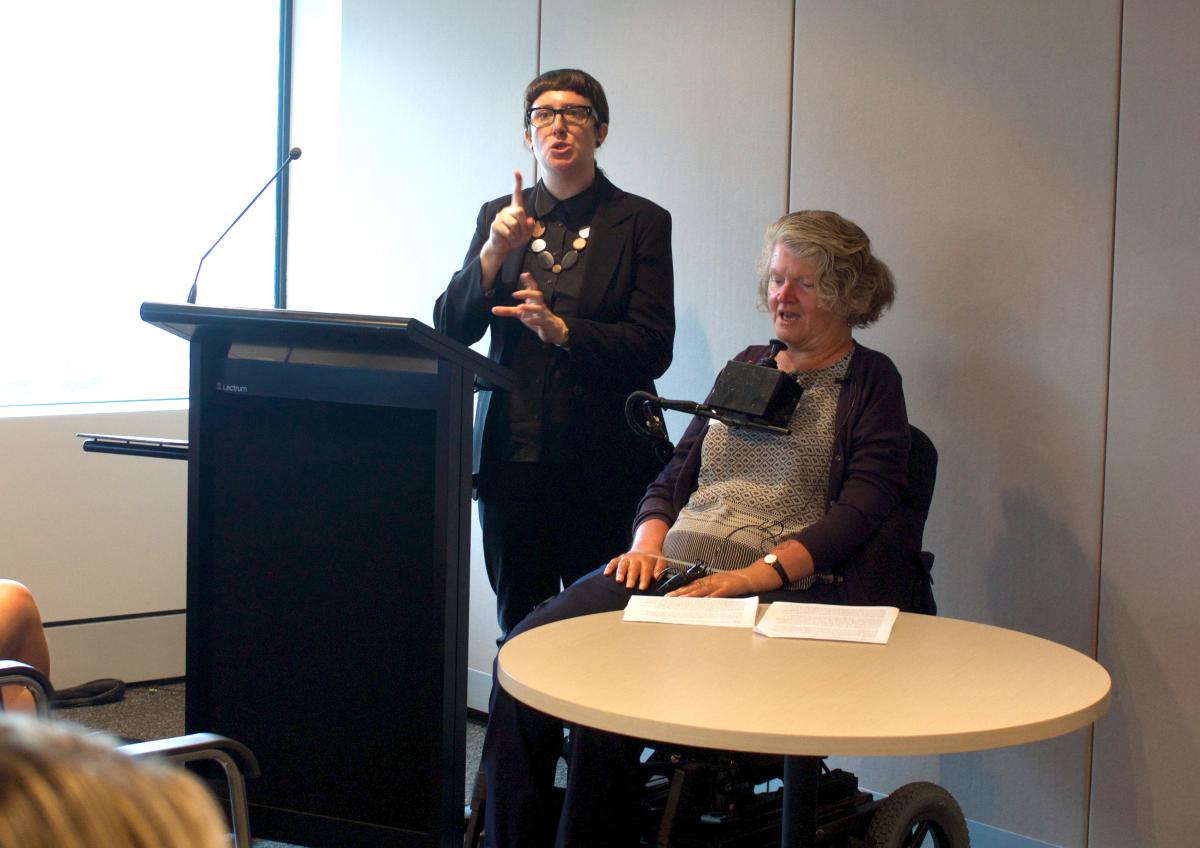11.12.2014
Rosemary Kayes, Director of the Human Rights and Disability Projects at the Humand Rights Centre, UNSW Law, and member of the Inquiry’s Advisory Committee, speaking at the launch of final report, Equality, Capacity and Disability in Commonwealth Laws (ALRC Report 124), in Sydney on Thursday 11 December 2014.
 I’d like to acknowledge the traditional owners of the land on which we meet: the Gadigal people of the Eora nation. I pay my respect to their elders past and present.
I’d like to acknowledge the traditional owners of the land on which we meet: the Gadigal people of the Eora nation. I pay my respect to their elders past and present.
The experience for people with disability is one of separate and segregated, much of this has come about under the guise of care, treatment and protection. Society’s approach to disability has been to create separate parallel systems for people with disability without challenging the existing system, without challenging the narrow preconceived notions of how people in society should function and how systems should operate. We define people in terms of deficit and lack without challenging the systems and their responsiveness to diversify.
This has been evident in the denial of legal capacity through legislation such as guardianship, unsound mind provisions, coercive mental health provisions and justice diversion such as unfit to plea. These provisions have, under the guise of protection, resulted in what the commentators have called “a civil death” for many people. A divorce from the civil world. An isolation from civil functions such as finance, governance, voting, even marriage. These provisions have been the basis for some of the most egregious human rights violations. These processes that by design, implementation or lack of resources have meant people with disability have been isolated from key decision making or life opportunities denying them participation not just in the community but in their own lives.
In recent years there has been a move away from the paternalism of care treatment and protection and a call for a human rights approach as enshrined in the Convention on the Rights of Persons with Disabilities. A central theme to the convention on the rights of persons with disability is the recognition of disability as part of human diversity. Recognition of disability as just another aspect of the human spectrum and that inclusion requires the means by which society operates, to be inclusive and accessible by all. The other fundamental achievement of CRPD is that it quite symbolically establishes people with disability as subjects of rights, according them with both the holding of rights and the capacity to act on those rights. Without the recognition of legal capacity these are hollow rights.
This report and its recommendations are significant steps in addressing the denial of legal capacity for people with disability. It challenges the essentialism of liberal theory and rejects the notion we are all rational islands. That decision making and contracts— even the social contract through voting— do not happen in isolation of support and trusting relationships.
Until people with disability can freely express their will and preference through reforms such as these, they will continue to lead a segregated and isolated life where they are vulnerable to exploitation, abuse and having their rights ignored. They are at risk of living a life of someone else’s choosing through the veil of best interests until we have systems in place that promote and protect the expression of everybody’s will, preference and rights. For people with disability, these reforms demonstrate a willingness to accept disability as part of human diversity and to build social structures that are truly inclusive of all and fundamentally embrace people with disability as part of the human family.
